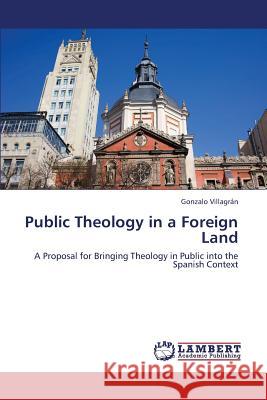Public Theology in a Foreign Land » książka
Public Theology in a Foreign Land
ISBN-13: 9783659431722 / Angielski / Miękka / 2013 / 432 str.
In the U.S. theological context since the 1970's, the current called "public theology" has offered a very interesting proposal for the church to be present in society. In its Catholic variant, this current is very much inspired by the American theologian David Tracy. This method of doing theology in public could be the way for the Church in Spain to develop a discourse rooted in Christian identity but understandable by modern Spanish pluralistic society. However, in order to be applied to the context of Spain, this current needs to be put in dialogue with the two other major actors in Spanish society: unbelief and the Islamic tradition. The work of French moral theologian Paul Valadier and that of some Islamic social thinkers help us to establish such a dialogue. By incorporating the insights of these two conversations, public theology presents a new and very interesting proposal for the Church in Spain to be present in the social debates.
In the U.S. theological context since the 1970s, the current called "public theology" has offered a very interesting proposal for the church to be present in society. In its Catholic variant, this current is very much inspired by the American theologian David Tracy. This method of doing theology in public could be the way for the Church in Spain to develop a discourse rooted in Christian identity but understandable by modern Spanish pluralistic society. However, in order to be applied to the context of Spain, this current needs to be put in dialogue with the two other major actors in Spanish society: unbelief and the Islamic tradition. The work of French moral theologian Paul Valadier and that of some Islamic social thinkers help us to establish such a dialogue. By incorporating the insights of these two conversations, public theology presents a new and very interesting proposal for the Church in Spain to be present in the social debates.











